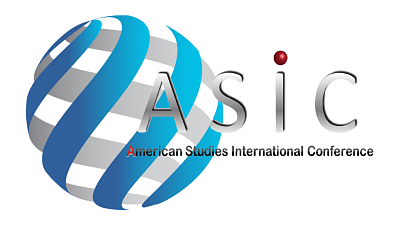
With the rapid development on technology, globalization spreads easily to the world. The two side of globalization are experienced by most of countries in the world. In one side, it provides easiness and openness, but on the other hands, it also brings negative impact, especially toward the local identity of a certain country. Many people are worried on the impact of globalization toward their local identity. As globalization brings in influences from other countries, the local identity starts to be a concern. Many people cheer the rise of globalization, but on the same time, many others are worried on the existence of their local identity since rapid access to information which results in homogenization, polarization and hybridization may threaten the uniqueness of certain local identity. The identity of individuals, the identity of a culture, and the identity of a nation are influenced how the power mechanism is running due to political, economic, and economic conditions social will result in a superior individual identity compared to other individual identities (Rutherford, 1990: 9-27).
History recognizes that since the end of World War II America’s role is very significant in the economic arena and world politics, followed also by ‘cultural exports,’ represented by multinational corporations that are partly based in America that by some American intellectuals are trying to create a global capitalism (Bartolovich, 2005). As a radical change of world economics and politics of the late 20th century replaced the political leadership, geopolitics, and economic activities during the 19th and 20th centuries experience a metamorphosis. Economic activities took over the initiative and big Trans-National Corporations (TNCs) began to dislodge the authority of the government. This new trend led to new international economic blocs, it eroded the power of national governments, and it forced average people to adjust to new realities. In the global world, the local identity has a bargaining power to strengthen power of a nation, thus the discussion of the local identity in globalization is worthy done indeed. Such change certainly results in the way we look at things like what happens in American Studies. America is always present with global issues and also has effects on other countries in the world in terms of ideology, culture, art, and so forth. While America’s influence on other countries in the world is getting stronger in the beginning of the globalization era, its influence is eroding since local identity emerges and generates. Globalization thus offers, in many respects, an important opening for scholarly interventions on the parts of American Studies scholars.
THEME AND TOPIC AREAS No Column Title – 489
THEME : Local Identity in Globalization
TOPIC AREAS
Topics include but not limited to:
1. Globalization and Cultural Hybridity
2. Postcoloniality
3. Cultural Hegemony
4. Culture, Identity and New Media
5. Cosmopolitanism
6. Culinary and Global World
7. Religion and Ideology for Global Citizen
8. Ethnic and Ethnicity in Borderless Society
9. Sense of Belonging in Global World
10. Teaching and Education in Changing World
SUBMISSION No Column Title – 534 1. Guidelines for Submitting Abstract
- Write your approximately 250-word abstract. Provide the title of your article, full name, email, name of department and university.
- Indicate under what particular topic area your abstract is being submitted.
- Submit your abstract no later than Thursday, September 06, 2018.
- Upload your abstract to goo.gl/SwGDZP
2. Guidelines for Submitting Full Paper
- Your full manuscript is a 6-8 page length.
- The full manuscript must be submitted as an MS Word document (not as a PDF) and named with author’s abstract number and name.
- All manuscripts should be in English. Please ensure that your manuscript does not contain grammatical or English errors; this is especially important if English is not your first language.
- Download the Full Paper Template and follow the guidelines (the template can be downloaded in goo.gl/jKdBez)
- Submit your full manuscript no later than Sunday, September 30, 2018.
- Upload your full paper to goo.gl/FCgMXL
PUBLICATION OPPORTUNITY No Column Title – 583 All submitted conference full manuscripts will go through double-blind peer review process by two competence reviewers. All articles will be published in digitalpress.ugm.ac.id and will be free of charge. Selected articles will be published in Rubikon, Celt, K@TA, Humaniora, EduLite, and Poetika journals. The publication fee for selected papers published in accredited and index journals depends on the journal requirements. TIME AND VENUE No Column Title – 605 American Studies International Conference 2018 will be held on:
– Day: October 25-26, 2018
– Time allocation: 08.00-finish (as scheduled)
– Venue: Soegondo Building, 7th floor, FIB, UGM EDITORS Scientific Editors Prof. Dr. Juliasih Kusharyanto, S.U.
(Department of Intercultural Studies, Universitas Gadjah Mada, Indonesia)
Prof. Carla Jones, Ph.D.
(Professor of Anthropology at University of Colorado Boulder, USA) Editor Committee 1. Dr, Ekawati Dhukut.
(Universitas Katolik Soegijapranata)
2. Dr. Tofan Dwi Hardjanto, M.A. (UGM)
3. Dr. Nuriadi (Universitas Mataram)
4. Dr. Mister Gideon Maru
(Universitas Negeri Menado)
5. Dr. Aris Munandar, M.Hum. (UGM)
6. Dr. Nur Saktiningrum, M.Hum. (UGM)
7. Ahmad Munjid, Ph.D. (UGM) REGISTRATION FEE No Column Title – 638 [table id=2 /]
Proof payment can be submitted to goo.gl/SsWoY6 IMPORTANT DATES No Column Title – 688 [table id=3 /] CONTACTS No Column Title – 704 For further information, please contact:
1. Rif’ah Inayati (+6285259004005)
2. Nadia Lasari (+6285755649314)
3. Farah Al-Kaff (+6285740721720)
Website: ich.fib.ugm.ac.id
Email: asic@ugm.ac.id

